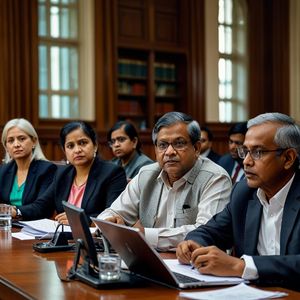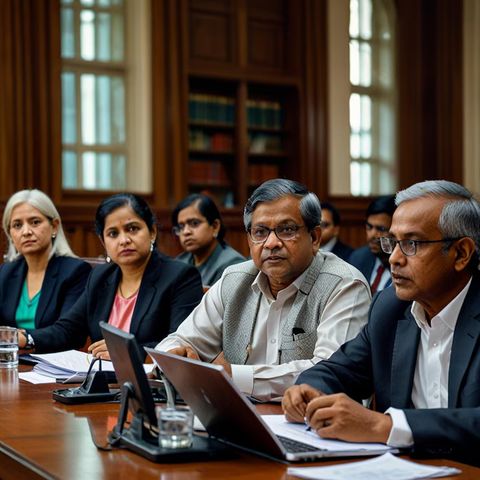Medical universities in countries such as Russia, the Philippines, Georgia, Ukraine, Kazakhstan, China, and Caribbean nations have become popular destinations for international students. These institutions typically offer English-medium programs and are often recognized by global health bodies like the World Health Organization (WHO) and National Medical Commissions (NMC) of respective countries.

This guide explores the need, process, legalities, and key tools for starting your MBBS journey abroad.
Why It Matters Today
Studying MBBS abroad is gaining attention for several reasons:
Seat Shortage at Home: Countries like India have an extremely high demand for medical seats, but supply remains limited, with only a few government colleges offering affordable education.
Lower Tuition Fees: In several countries, total MBBS costs are significantly lower than those of private institutions in students' home countries.
Global Recognition: Many international medical colleges are recognized by WHO, ECFMG, and other major health organizations.
Cultural and Professional Exposure: Studying abroad introduces students to diverse patient cases and modern healthcare systems.
For many aspiring doctors, especially those unable to secure admission locally due to limited seats or high costs, international MBBS programs offer a viable, cost-effective, and accessible alternative.
Recent Trends and Updates
Several significant developments have impacted MBBS abroad in the past year:
Rising Demand from India
According to data from the Ministry of External Affairs (India), over 23,000 Indian students were studying medicine abroad as of 2023. The trend continues to rise, especially after the National Medical Commission clarified screening test regulations for foreign graduates.
NEET Qualification Requirement
Since 2019, the NEET (National Eligibility cum Entrance Test) has become mandatory for Indian students wishing to study MBBS abroad. This rule ensures that only academically eligible candidates pursue medicine overseas.
FMGE and NExT Regulations
As per the National Medical Commission Act, the Foreign Medical Graduate Examination (FMGE) remains in effect, with plans to replace it with the National Exit Test (NExT) in 2025. All students graduating abroad will need to pass this test to practice in India.
War Impact on Ukraine
The conflict in Ukraine since 2022 forced many students to transfer to other countries like Georgia and Kazakhstan. As of mid-2024, many Ukrainian institutions are offering hybrid learning models, including clinical rotations in neighboring countries.
Key Policies and Legal Considerations
Studying MBBS abroad involves navigating a web of policies, both in the home country and abroad.
In India (For Indian Students)
NEET Qualification: Mandatory for admission and registration with the NMC.
NMC Gazette Notification: Foreign medical institutions must meet specific criteria (e.g., course duration, language of instruction, clinical rotations) for degrees to be recognized.
FMGE Screening Test: Required to practice medicine in India after earning a foreign degree (until NExT replaces it).
In Host Countries
Visa Regulations: Countries like Russia and China offer student visas for the duration of the course; attendance and academic performance are closely monitored.
Accreditation Requirements: Ensure the university is listed in the World Directory of Medical Schools (WDOMS) and recognized by the local medical council.
Language Tests: Some countries may require basic proficiency in their native language for clinical interaction, even if the course is taught in English.
Useful Tools and Resources
Here are some key platforms, calculators, and services that simplify the MBBS abroad process:
| Tool / Resource | Purpose | Link |
|---|---|---|
| WDOMS | Check if a university is globally recognized | https://www.wdoms.org |
| NMC India | Regulations and recognized universities | https://www.nmc.org.in |
| NEET Official Site | Application and result tracking | https://neet.nta.nic.in |
| Study Abroad Cost Calculators | Estimate tuition + living expenses | [Various EdTech sites: Manya, LeapScholar] |
| University Portals | Direct applications and document upload | Country-specific university websites |
You may also consider academic consultancies (but verify their credentials) and join forums like Quora, Reddit, and Telegram groups to connect with current MBBS students abroad.
Frequently Asked Questions (FAQs)
Q1. Is NEET mandatory to study MBBS abroad?
Yes. NEET is required for Indian students to gain eligibility for MBBS programs abroad and later appear for FMGE or NExT.
Q2. What is the duration of MBBS abroad?
Typically, the duration is 5–6 years, including a 1-year clinical internship. Some countries offer longer programs depending on local medical council norms.
Q3. Can I practice in India after earning an MBBS abroad?
Yes, but you must pass the FMGE (currently) or NExT (from 2025 onward), as per the guidelines of the NMC.
Q4. Which countries are popular for MBBS abroad?
Russia, Georgia, Kazakhstan, Philippines, China, and Kyrgyzstan are common destinations for Indian students due to lower fees and English-medium instruction.
Q5. What should I check before applying to a foreign university?
Check for NMC recognition, WDOMS listing, language of instruction, accreditation, total costs, local regulations, and visa support.
Conclusion
Studying MBBS abroad opens the door to a fulfilling medical career for thousands of students each year. While the opportunity is real and practical, it's essential to navigate the process carefully understanding academic requirements, legal implications, costs, and accreditation standards.
With informed planning and access to the right resources, students can achieve their goal of becoming a doctor even beyond national borders while ensuring their degree remains valid for global or home-country practice.






